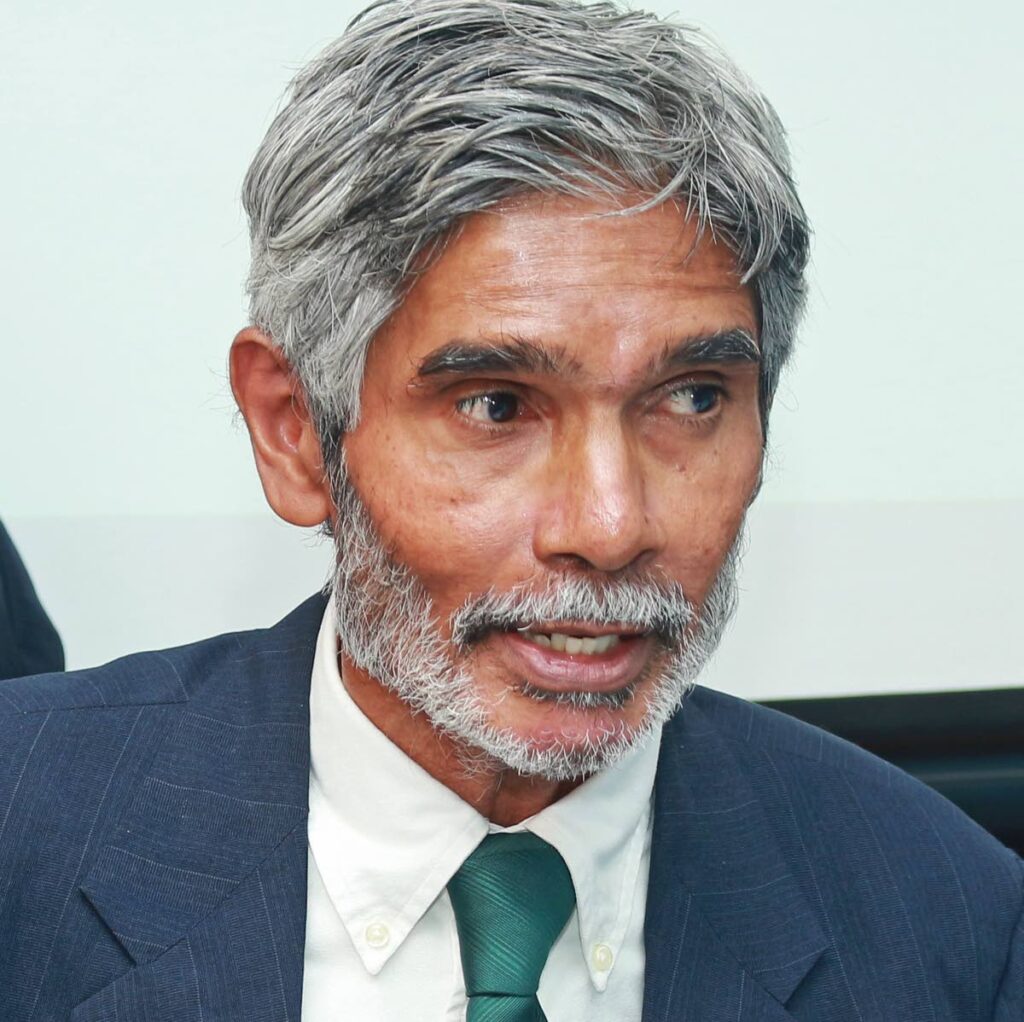Nobody knows. Again

WAYNE KUBLALSINGH
AND NOBODY knows. In local parlance, a big macco barge, towed by a big macco tug, with a big macco cable, bifurcates the aquamarine waters between Trinidad and Tobago, with a big macco cargo of, who knows, lumber, sand, “oil-like substance,” sinks off the south-eastern shore of Tobago; and nobody knows the culprits. And was the kilogram of cocaine found near the spill part of the cargo? On the balance of probabilities, it appears, not necessarily related, still under investigation. Nobody knows.
This "nobody knows" story is typical of our narcotic interdiction practices in TT.
Here are five factors which put the narcotics trade in TT into context:
The narcotic supply chain
Narcotic cartels in the coca-growing Andean chain, Colombia and Peru, which supply cocaine to the world market, are more equipped to supply, defend and sustain their cartels than some national governments are prepared to disrupt and defeat them.
Such cartels source expertise from armies, the police, airport staff, shippers, launderers, bankers and in instances the US Drug Enforcement Agency; who provide sophisticated intelligence, surveillance, financial services, transport and arms support.
One route is from Colombia to the eastern border of Venezuela. Another is from Colombia or Central America, along the Caribbean coastline, plying TT waters to Guyana. Like Venezuela and Guyana, Trinidad is a transfer point in the Gulfstream of the narcotics economy.
Between 2000 and 2005, murders in Trinidad increased at rates of 25.24 per cent, 25.24 per cent, 12.62 per cent, 33.17 per cent, 12.90 per cent (World Bank), coinciding with narcotics flow into Trinidad from South America (Report of UN Office on Drugs and Crime).
The narcotics market
The narcotics market in the Western Hemisphere is fuelled and fashioned by the demand for cocaine, crack, heroin, fentanyl, opiates and amphetamines in the US, Canada and Western Europe. According to the report of the UN office, “Market forces have already shaped the asymmetric dimensions of the drug economy; the world’s biggest consumers of the poison (the rich countries) have imposed upon the poor (the main locations of supply and trafficking) the greatest damage.”
Psychological pathology and social dystopia in North America are fuelling the drug trade in the Caribbean and Central and South America.
Approximately 80 per cent of the inmates in the US are afflicted with a drug problem. Fentanyl has become America’s black plague. The manufacture of fentanyl has shifted from kitchen pots in drug-torn states like California to beaker and Bunsen burner labs in Mexico. In 2021, 106,669 Americans died from drug overdose.
Currently, the overdose death rate is 307 per day. This is not only an “inner city” phenomenon. The all-American heartland girl and boy, from which industrial and manufacturing bases have closed, outsourced abroad, are being mowed down like wheat thrash. The War on Drugs, Just Say No, cannot cope. In 2008, the US was the largest global market for cocaine.
Narcotics, sovereignty and security
In some parts of Mexico drug cartels have taken over law and order. In October 2019, the city of Culiacan spent half a day under the terror of drug cartel guns as gangs forced the government to free a drug lord’s son. The guns of the gangs exceeded that possessed by official police. In a narcocracy, the cartels have more power than official government.
This industry constitutes an existential threat to our island states in the Caribbean, our entire security apparatus: police, army, coast guard, immigration officers, elements in the judiciary, legal and political officers.
Punishment for narcotics
In 1989, Arnaldo Ochoa Sanchez, one of Fidel Castro’s most distinguished war generals and comrades, was found guilty of allowing South American drug traffickers to use Cuban waters for drop-offs and pick-ups. Castro himself appeared before the military tribunal as a witness against his comrade. He spoke out against Sanchez as he would at a political rally attacking US imperialism or sanctions. Full of sound and fury. Sanchez was executed before a firing squad.
In China, if you are found with 50 grams or more of heroin or crystal methamphetamine, you could be executed. The Chinese way is swift punishment. Brisk. Cuba has one of the lowest rates of narcotic crimes in the Caribbean and Americas. China has one of the lowest on the planet.
The fix-America requirement
The Caribbean is being “damaged” by a problem originating in America. There are good reasons why Donald Trump vies to bring back US jobs from China, Mexico, Canada, etc; rebuild the manufacturing and industrial base of middle America; build a border wall to attack drugs/fentanyl; allow legal migrant crossings only; swiftly deport drug and gun gangs originating in Central America; bring Big Pharma to heel (overpricing and opioid addiction); and withdraw from globalisation and line-in-the-sand wars, in preference to exploiting indigenous US energy, draining the Washington swamp and MAGA.
Caricom must take a stand. It must tell the US that it is damaging the Caribbean’s economy and institutional integrity. It must request that the US gets its Hotel California in order. Instead of embarking on proxy and regime-change wars globally, and imposing sanctions on our sovereign gas fields, it must fix its problem. Fix America first.
Who or what were the owners, route, destination, names, business, point of origins of the vessels? Our maritime surveillance and intelligence apparatus do not know. The police caution against relating the cocaine to the spill. Who knows? When will we know? Nobody knows. Again.

Comments
"Nobody knows. Again"